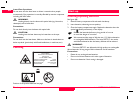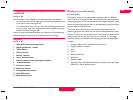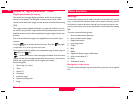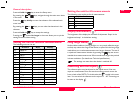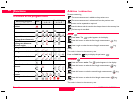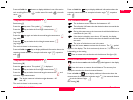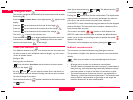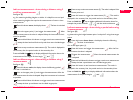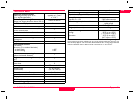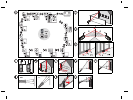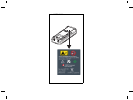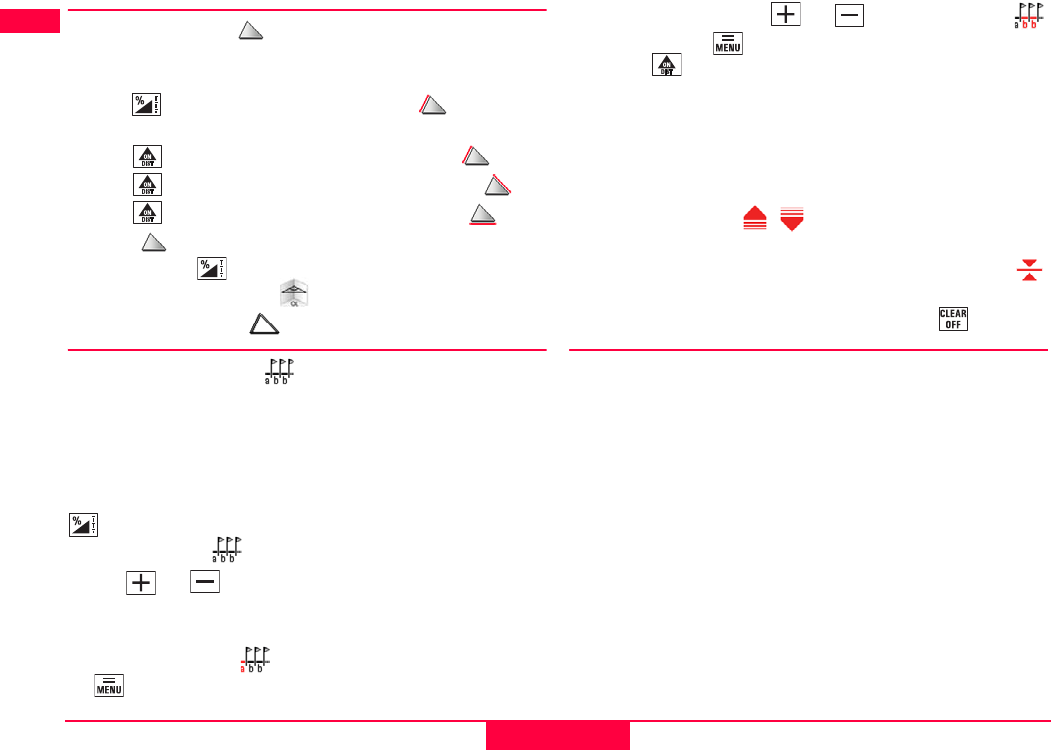
12
Functions
Leica DISTO™ D5 LCA782204a en
EN
F
E
P
Triangular area
The area of a triangle can be calculated by the measurement of three sides.
See drawing {N}.
Press the key three times - the triangle symbol appears in the
display.
Press the key and measure the first side of the triangle .
Press the key and measure the second side of the triangle .
Press the key and measure the third side of the triangle .
The result is shown in the summary row.
Press and hold the key to display additional information about the
measurement, such as the angle included by the first two measu-
rements and the perimeter of the triangle.
Stake out function
Two different distances (a and b) can be entered into the instrument and
can then be used to mark off defined measured lengths, e.g. in the const-
ruction of wooden frames.
See figure {O}.
Entering stake out distances:
Press this button four times and the stake out function symbol
appears in the display .
By using and , you can adjust the values (first a and then b) to
suit the desired stake out distances. Holding the buttons down increases
the rate of change of the values.
Once the desired value (a) has been reached it can be confirmed with
the button.
Value (b) can be entered using and . The defined value (b)
is confirmed with the button.
Pressing the button starts the laser measurement. The display shows
required stake out distance in the summary line between the stake out
point (first a and then b) and the instrument (rear reference).
If the DISTO™ is then moved slowly along the stake out line the displayed
distance decreases. The instrument starts to beep at a distance of 0.1m
from the next stake out point.
The arrows in the display indicate in which direction the
DISTO™ needs to be moved in order to achieve the defined distance
(either a or b). As soon as the staking out point is reached, the symbol
appears in the display.
The function can be stopped at any time by pressing the button.
Indirect measurement
The instrument can calculate distances using Pythagoras’ theorem.
This procedure is helpful, if the distance to measure can not be reached
directly.
)
Make sure you adhere to the prescribed sequence of measu-
rement:
• All target points must be in a horizontal or vertical plane.
• The best results are achieved when the instrument is rotated about a
fixed point (e.g. with the positioning bracket fully folded out and the
instrument placed on a wall) or the disto is mounted on a tripod.
• The minimum/maximum function can be used - see explanation in
"Measuring -> Minimum/maximum measurement". The minimum value
must be used for measurements at right angles to the target; the
maximum distance for all other measurements.



